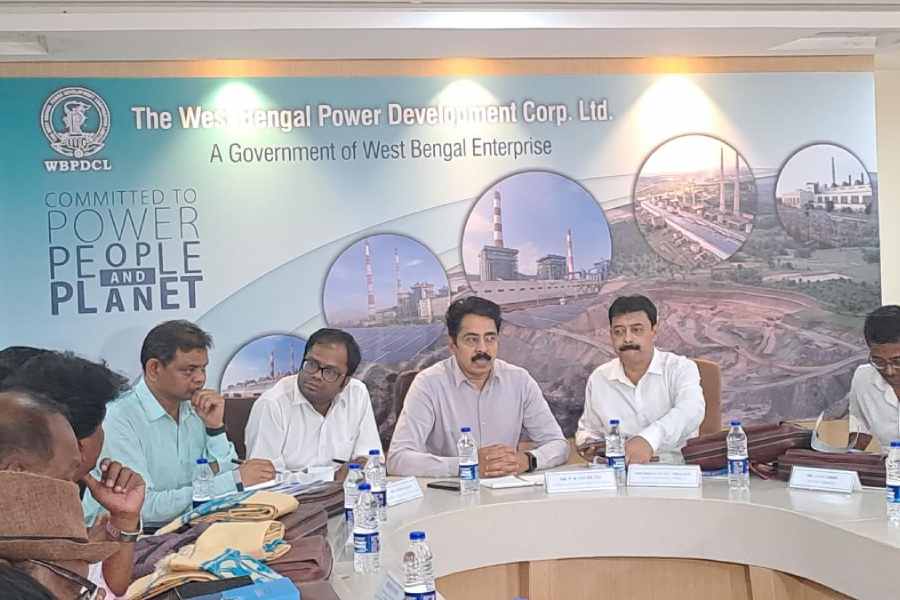Senior state government officials convened a meeting on Wednesday with at least 10 representatives of 50 tribal organisations on the proposed Deocha-Pachami coal mine in Birbhum, urging them not to be swayed by the narrative of large-scale evictions claimed by the project’s opponents.
“We found that a group of people is trying to mislead the public by spreading misinformation about the Deocha-Pachami project. In the meeting, we engaged with numerous tribal outfits and clarified there would be no open-cast mining and hence no question of eviction,” said P.B. Salim, the director and managing director of the West Bengal Power Development Corporation.
A government official said that as initial reports suggested the coal layer was suitable for underground mining, the state government approached the centrally-run National Institute of Rock Mechanics (NIRM) for its expertise. The autonomous body is currently conducting its research to plan underground mining without displacing homes.
Salim apart, the meeting was attended by Birbhum district magistrate Bidhan Ray, Trinamool’s Rajya Sabha member Samirul Islam, and a team of government and
WBPDCL officials, who addressed queries raised by the tribal representatives.
The soil removal process for basalt mining began a day after Mamata Banerjee announced at the Bengal Global Business Summit on February 5 in Calcutta that the project was the state’s most significant industrial initiative.
However, completing the project before the 2026 Assembly elections has become a challenge for the state government amid reports of discontent among several local villagers.
To begin coal extraction, basalt mining — which involves removing the black stone layer above the coal — must first be completed.
A fresh protest by local villagers on March 4, which halted the initial basalt mining work, prompted the government to recognise multiple forces working to intensify opposition to the coal
mine project.
A series of social media posts and campaigns by opponents of the proposed mine, including Opposition parties, emerged as a threat to the Mamata Banerjee government’s efforts to continue with project work peacefully.
A source said the central theme of the anti-project campaign was that the Mamata government intended to establish a large-scale open-cast coal mine requiring the eviction of thousands of tribal families.
Wednesday’s meeting took place against the backdrop of a proposed protest in Calcutta, organised by a section of tribal outfits led by the Jal, Jangal, Jami o Adivasi Banchao Andolon. Scheduled for March 21, the protest rally is set to start at Sealdah railway station and end at the Esplanade Y-Channel.
“There are many unanswered questions about the project. While the government is purchasing land and offering jobs as compensation, some officials are claiming there will be no eviction. Contradictory statements from the government are confusing and concerning,” said Rajen Tudu, the joint convener of the Jal, Jangal, Jami o Adivasi Banchao Andolon.
However, those who attended Wednesday’s meeting said that the state government officials stressed three major points.
One, there will be no open-cast mining in the area in question. The government plans to extract coal from the area through underground mining. Two, with no open-cast mining, there is no question of evicting anybody from the area. Three, if anybody is unwilling to part with their plots in the project area, the government would not force him or her to sell the land. The project will be carried out keeping the land of the unwilling person out of the project area.
“We heard rumours that the government planned to evict a large number of people to establish an opencast coal mine. However, in today’s (Wednesday’s) meeting, government officials clarified that underground mining will be conducted, eliminating the need for eviction. Nevertheless, we will closely monitor the government’s actions on the ground before deciding how to proceed in protecting tribal rights,” said Mitan Chandra Tudu, the working convener of the United Forum of All Adivasi Organisation.










